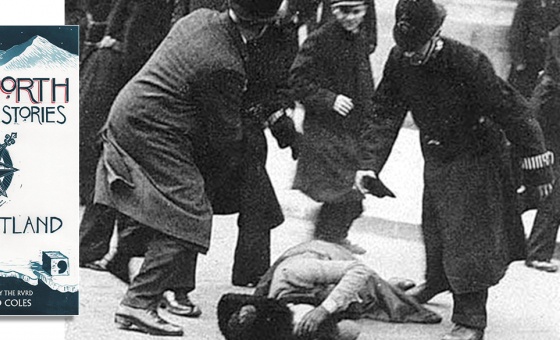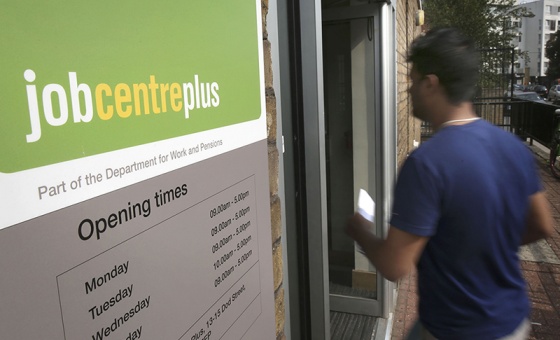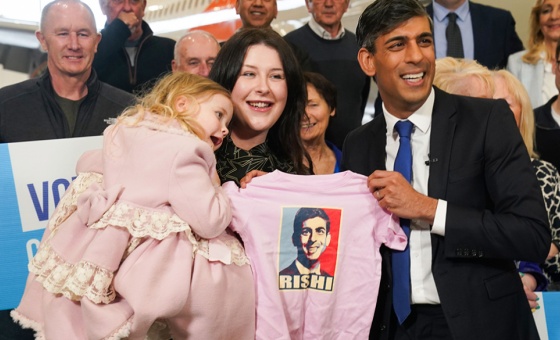This is the last article you can read this month
You can read more article this month
You can read more articles this month
Sorry your limit is up for this month
Reset on:
Please help support the Morning Star by subscribing here
WHEN the programme Being Bipolar, with psychotherapist Philippa Perry, was first aired on Channel 4 in 2015, the audience got a taste of anti-psychiatry in practice.
Prior to meeting any patients, Perry spoke about her doubts as to the validity of the diagnosis bipolar. When she met them, she asked whether a traumatic incident in their past had contributed to their condition and led to the symptoms they were experiencing.
One patient swept his arm through the air, and said: “Zero, zero, zero.”
“Sorry, no there isn’t,” replied another, shaking her head.
She didn’t believe them and carried on throughout the programme making sweeping claims. As the programme drew to a close, she said, instead of asking what is wrong with a service user, the question should be what happened to them.
That question — what has happened to the service user, is the thrust of the power threat meaning framework (PTMF) that was published by a clinical division of the British Psychological Society.
They say that psychological, emotional and behavioural problems occur because power imbalances of the situation are a threat, leading to the learned responses.
Adversity and trauma are always the result of power imbalances and abuses — and this trauma affects the brain in certain ways.
What counts as a “trauma” in the PTMF is extremely broad, from physical and sexual abuse to living in a socially deprived area.
This is due to psychotherapists’ need for the majority of patients to fit within the PTMF — it even includes conditions where research has identified a genetic link, such as ADHD.
The “anti-psychiatrists” claim there is no scientific basis for a “sticky” mental health diagnosis. Instead they state (with no evidence to back it up) diagnosis of mental health conditions are a set of ideas imposed by a powerful group, which don’t allow the individuals concerned to make sense of their own experiences.
Lucy Johnstone, a psychologist and one of the lead authors of the PTMF, wrote in A Straight-Talking Introduction to Psychiatric Diagnosis (2014): “There is, of course, a bigger question about whether professionals should be using or offering psychiatric diagnosis at all.
“If we accept the argument that these are not valid or evidence-based terms, then professionals should be rejecting them in the same way they that they have abandoned earlier labels such as ‘possession by evil spirits’ … or ‘wandering womb.’
It’s unlikely any psychiatrist would defend psychiatry of old or refuse to admit there are serious problems with the current system, yet the PTMF uses those problems in order to reject the validity of a diagnosis such as bipolar or schizophrenia.
That could lead to many consequences. That has been illustrated in the traumatic power struggle in mental health where the impact of anti-psychiatry could be seen in how the model was adopted by the Tory government in order to deliver severe cuts to benefits for those with a mental illness and/or disability.
Not surprisingly, this 400-plus page document was met with criticism over the lack of evidence — ironically, a claim levelled at psychiatry in the document.
Dr Phillips*, a psychiatrist in the south of England was one of many in the mental health profession to join the discussion, with his input mainly about the use of diagnosis.
He said: “Those I see in my clinic who’ve experienced trauma in their lives may find the PTMF helpful, but others would be confused with an explanation that their symptoms are a response to a power threat.”
He stressed that any mental health professional should be able to work flexibly across different models to find what is most helpful to their client at that particular time. Anyone who becomes too reliant on one particular model is letting down their client.
He pointed to what Robert Kendall had written in The Role of Diagnosis in Psychiatry (1975): “Thoughtful clinicians are aware diagnostic categories are simply concepts, justified only by whether they provide a useful framework for organising and explaining the complexity of clinical experience in order to provide predictions about outcome and to guide decisions about treatment.”
Phillips’s measured criticism of the PTMF attracted angry comments from its supporters. After a few weeks, he felt that the hostility between professional groups was at a level he had not experienced before, which not only had a direct impact on professionals, but indirectly service users too.
This anger at those who criticised the PTMF intrigued linguist and professor of discourse and cultural studies, Dariusz Galasinski, who in his blog wrote that the PTMF had no automatic entitlement to greatness: “If this is the document which is to tell me how I must talk and feel about my experience, I think it should get a lot of attention. And if it can be torn to pieces, it should get torn to pieces.
“Too often [the PTMF] hides what it says, has claims which cannot be sustained, is ambivalent, puts contested claims into assumptions behind statements,” Galasinski said, adding: “The framework’s idea is not best served by a document which all too often is a smokescreen.”
Galasinski concedes elements of the framework would be helpful “as a starting point for discussion,” but he stressed: “The idea that you can simply replace a system of classification of illness (and resulting from it, a system of social benefits, for example) with one document is simply implausible.”
Dariusz Galasinski’s latest book is Discourses of Men’s Suicide Notes (Bloomsbury Advances in Critical Discourse Studies). *Dr Phillips is a pseudonym to protect confidentiality. Ruth F Hunt is a freelance journalist and author.












